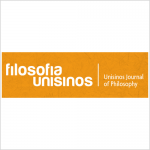Recognition versus Redistribution: the case of self-respect
Vol 8, No 3 (2007) • Filosofia Unisinos - Unisinos Journal of Philosophy
Autor: Caroline Guibet Lafaye
Resumo:
Self-esteem is deemed to be the “most important primary good”. The care for self-esteem and individual dignity is regularly restated in international treaties and international conventions. Nevertheless, contemporary moral philosophy tends to leave the redistribution issues aside to concentrate on the issues of recognition although Rawls initially set the question of recognition in the framework of distributive justice. Although the discrepancy between redistribution – concerned with resources – and recognition – dealing with identity – is notable, it is not insuperable. On the reverse, we will demonstrate that the concern for “basic social outcomes” is a way to conciliate the preoccupation for recognition and the concern for redistribution. In order to show this, we will first focus on the social relevance of the concept of self-esteem. Then we will analyze the role of the social institutions of redistribution in order to identify the conditions under which these institutions preserve self-respect and avoid social stigmatization. Finally we will identify the processes and the tools of redistribution which appear most able to promote and induce self-respect (such as a fair distribution of primary goods, the universal basic income, a fair allocation of basic social outcomes).
ISSN: ISSN: 1984-8234
Texto Completo: http://revistas.unisinos.br/index.php/filosofia/article/view/5825
Palavras-Chave: self-esteem,redistribution,recognition,,basic

Filosofia Unisinos - Unisinos Journal of Philosophy
The journal Filosofia Unisinos - Unisinos Journal of Philosophy is published once every four months by Universidade do Vale do Rio dos Sinos.
Articles must be original, unpublished, and not under consideration for publication anywhere else and can be written in Portuguese, English or Spanish
Filosofia Unisinos - Unisinos Journal of Philosophy prints articles, translations and critical book reviews. It also reprints papers that are considered fundamental to the area when authorized written permission is given by the original publisher.
